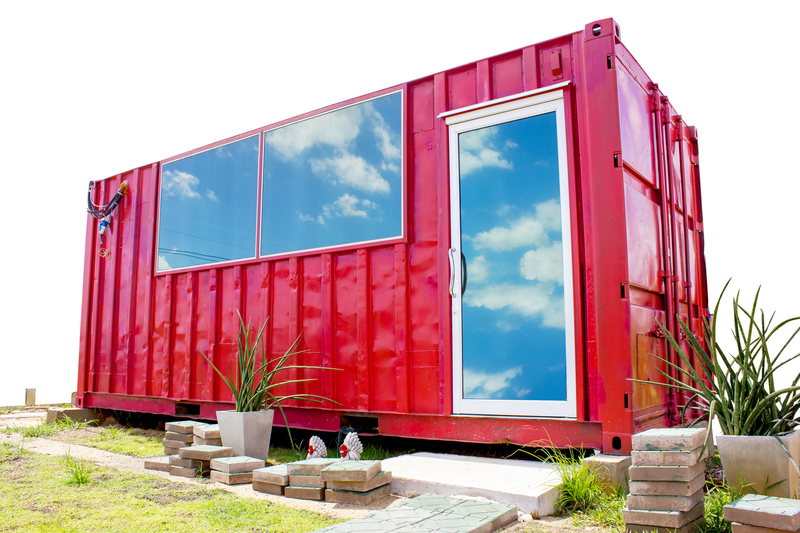Why Recycling Your Pots and Pans Matters for the Planet: A Comprehensive Guide
If you're like many people, you may have a kitchen cupboard or storage area filled with old, unused, or worn-out pots and pans. You might be tempted to simply throw these items in the trash, but did you know that recycling your pots and pans can have a significant positive impact on the environment? In this comprehensive article, we'll explore why recycling your cookware matters for the planet, how the process works, and how you can responsibly dispose of your old kitchenware.

Understanding the Importance of Recycling Cookware
What Happens to Pots and Pans When They're Thrown Away?
When you throw away cookware like pots and pans, they're typically sent to landfills. Most pots and pans are made from metals such as aluminum, stainless steel, or copper, materials that do not break down easily in the environment. By sending these valuable resources to rot in landfills, we not only waste finite materials but also contribute to environmental degradation.
- Metals take centuries to degrade: When dumped in a landfill, cookware can sit for hundreds of years.
- Leaching of harmful substances: Non-stick coatings or other chemical treatments on cookware may break down over time, potentially leaching hazardous substances into the soil and groundwater.
- Loss of recyclable materials: Metals and other components can often be reused to create new products, but only if they are properly recycled.
How Does Recycling Help Conserve Resources?
Recycling old pots and pans isn't just about reducing landfill waste. One of the key advantages is the conservation of valuable resources. Most cookware is made of metals like:
- Aluminum: Used frequently in pans due to its lightweight and heat conductivity.
- Stainless steel: Durable and resistant to rust, making it a top choice for pots.
- Copper: Excellent for heat distribution, often used in high-end pans.
All these metals require significant energy and natural resources to mine and process. By recycling, we reduce the need for new mining operations, thereby conserving raw materials and reducing environmental impact.
Environmental Benefits of Recycling Your Pots and Pans
1. Reducing Landfill Waste
The most immediate benefit of choosing to recycle old cookware is less waste in our landfills. Landfills are a major environmental concern, not only for the space they occupy but also for the pollutants they generate. Each pot or pan you recycle is one less object taking up valuable landfill space.
2. Lowering Greenhouse Gas Emissions
Did you know that producing metal from recycled materials uses much less energy than creating it from raw ore? For example, recycling aluminum consumes up to 95% less energy than forging it from bauxite. This substantial energy saving translates to significantly fewer greenhouse gas emissions, which is crucial in the fight against climate change.
3. Conserving Natural Resources
Mining for metals is not only energy-intensive but also destructive to natural habitats and ecosystems. By opting to recycle kitchenware, you help preserve forests, waterways, and wildlife habitats that might otherwise be destroyed by mining activities.
4. Decreasing the Need for Harmful Mining Operations
Mining operations, especially for metals like copper and aluminum, can cause extensive damage to the earth. Toxic runoff from mines pollutes water supplies, and vast tracts of land are often left barren and unusable. By recycling pots and pans, you contribute directly to a decrease in the need for new mining operations.
What Types of Pots and Pans Can Be Recycled?
Many people are unsure about which cookware items can be recycled. Here's a general guide to help you determine if your old pans and pots are suitable for recycling:
- Stainless steel and aluminum pans - Easily recyclable at most scrap yards or recycling centers.
- Copper cookware - Highly valuable to scrap dealers and recyclable facilities.
- Cast iron skillets - Can be recycled, though many enthusiasts recommend repurposing or restoring them instead.
- Pots and pans with non-stick coatings (like Teflon) - These can often be recycled, but you may need to remove any plastic handles or non-metal parts. Always check with your local facility.
- Pots with glass, ceramic, or plastic parts - Separate the non-metal components before recycling or discard them according to your area's recycling guidelines.
Items Typically NOT Accepted for Recycling
- Pots or pans with excessive food residue or grease buildup
- Cookware with attached electronics (like electric skillets)
- Glass and ceramic cookware (these have different recycling streams)
Before recycling, ensure pots and pans are cleaned and free from food residue. Local recycling programs may vary, so always check their guidelines first.
How to Recycle Old Pots and Pans Responsibly
1. Drop Off at Local Scrap Yards or Recycling Centers
Most communities have scrap metal buyers or recycling facilities happy to accept old pots and pans. The process is usually straightforward:
- Clean off food and remove non-metal components like plastic handles.
- Separate pans by metal type if possible (aluminum, steel, copper).
- Take them to your preferred drop-off location and follow any posted instructions.
2. Curbside Recycling (Where Accepted)
Some municipalities allow residents to include metal items like pots and pans in curbside recycling collections. Be sure to:
- Check your community's recycling guidelines online or contact your local recycling authority.
- Only include items that are clearly listed as accepted in your curbside program.
3. Donate or Repurpose Usable Cookware
Not all old cookware is destined for a recycling center. If your pots and pans are still in good condition, consider donating them to local thrift stores, shelters, or community kitchens. Alternatively, get creative and repurpose old pots and pans into planters, bird baths, or storage containers.
4. Manufacturer Take-Back Programs
Some cookware manufacturers operate take-back programs to responsibly recycle products at their end-of-life stage. Brands like Calphalon and certain major retailers periodically offer recycling initiatives for old cookware. Check manufacturer or retailer websites for current programs.
The Life Cycle of Recycled Pots and Pans
Ever wonder what happens to your cookware once it's recycled? Here's an overview of the process:
- Pots and pans are sorted by metal type (aluminum, steel, copper, etc.).
- The sorted metals are cleaned and melted down in industrial furnaces.
- The molten metal is formed into ingots or sheets, which are then sold to manufacturers.
- These recycled metals are used in new products - including vehicles, appliances, building materials, and even new cookware!
Through this process, valuable materials are kept in circulation, greatly reducing the need for new mining and resource extraction.
Common Myths About Recycling Pots and Pans
Myth 1: "Old Cookware Can't Be Recycled"
Many believe that because pots and pans often contain mixed materials, they can't be recycled. In fact, most metal cookware is accepted by scrap yards or recycling facilities, provided any plastic or non-metal parts are removed.
Myth 2: "Recycling Pots and Pans Isn't Worth the Effort"
Every bit of metal that is recycled reduces the demand for new materials and decreases pollution. Recycling even a single aluminum pan can save enough energy to run a TV for three hours!
Myth 3: "Non-Stick Pans Can't Be Recycled"
While non-stick coatings like Teflon complicate the process, many centers have the ability to effectively recycle these pans if you remove the handles and any other non-metal elements.

Creative Ways to Reuse Pots and Pans
Even if your old pots and pans aren't suitable for cooking anymore, that doesn't mean they don't have value! Before recycling, consider these innovative repurposing ideas:
- Planters for your garden
- Bird feeders or bird baths
- Wall art or vintage kitchen decor
- Storage containers for tools, craft supplies, or toys
- Baking pans as organizing trays in drawers
Conclusion: Make a Lasting Impact by Recycling Cookware
Your choice to recycle cookware, pots, and pans might feel like a small one, but it's an important step towards a healthier planet. By keeping these items out of landfills, preserving valuable resources, and cutting down on pollution, you're making a meaningful difference. Before tossing out old kitchenware, remember:
- Check if your local recycling center accepts cookware.
- Clean and disassemble items as needed.
- Donate or repurpose usable items whenever possible.
- Look for manufacturer take-back programs or special recycling events in your area.
Your efforts to recycle old pots and pans are a simple but powerful way to support sustainability and contribute to a cleaner, more resource-efficient world. The next time you upgrade your cookware, make sure your old set gets a new lease on life - for the sake of the planet!
Frequently Asked Questions
- Q: Can all metal pots and pans be recycled?
A: Most metal pans can be recycled if you remove non-metallic parts, but check local guidelines for specifics. - Q: How do I know what my old pan is made of?
A: Look for markings on the bottom or consult the manufacturer if possible. Magnet tests can help distinguish between certain metals. - Q: What if my community doesn't offer cookware recycling?
A: Search for nearby metal scrap dealers or recycling centers, or seek special collection events in your region.
Don't let those old pots and pans go to waste; recycle them for a greener tomorrow!